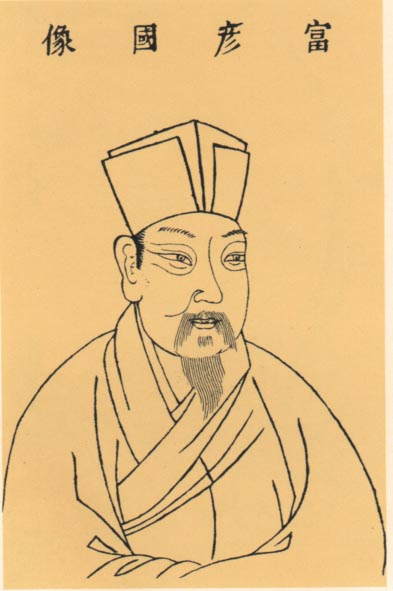I don’t think I’m not the one he scolds. (詬如不聞)
There was a famous minister in the Song
Dynasty. His name is (Fu Bi).
There is a story about him in the history
book.
One day, a friend said to him.
I heard that another friend of ours said
bad things about you in private. '
He shook his head and answered.
I think you have misunderstood, he will not
do this.
Said the friend.
I'm pretty sure he said bad things about
you in private, because he said your name very clearly.
He answered with a smile.
There are many people with the same name
and the same surname. Although he said the name (富弼), how can
you be sure that he is talking about me?
After he said this, he took the initiative
to leave this friend.
This idiom is used to describe a person who
will not affect his mood just because others scold him.
Dear friend, what inspiration or thoughts
did you have after hearing this story.
Do you think someone is really saying bad
things about him or this friend is instigating discord? Do you easily believe
what others say?
I hope this story will give you some new
gains.
詬如不聞(I don’t think I’m not the one he
scolds.)
宋王朝有一位著名的大臣。他的名字叫做(富弼)。
歷史書上紀錄了一個他的故事。
有一天,有一個朋友對他說。
我聽說我們另外一個朋友,他私底下說你的壞話。'
他搖搖頭回答。
我認為你誤會了,他不會這樣做。
這個朋友說。
我很確定他私底下說你的壞話,因為他很明確地說出你的名字。
他笑著回答。
相同名字與相同姓氏的人有很多,雖然他說出(富弼)這個名字,但是你怎麼確定他是在說我呢。
他說完這句話後他就主動離開這個朋友。
這句成語被用來形容一個人不會因為別人罵自己,而影響他的心情。
親愛的朋友,你聽完這個故事有怎樣的啟發或有怎樣的想法呢。
你認為真的有人在說他的壞話還是這個朋友在挑撥離間呢?你會輕易相信他人說的話嗎?
我期待這故事能讓你產生一些新的收穫。
出處為宋-陳長方-步里客談
https://zh.m.wikisource.org/zh-hant/%E6%AD%A5%E9%87%8C%E5%AE%A2%E8%AB%87
